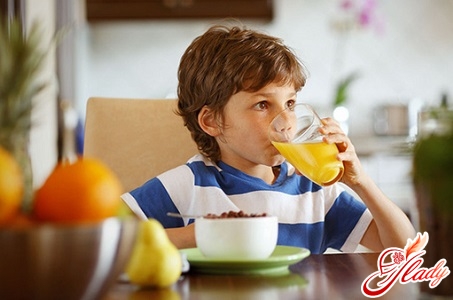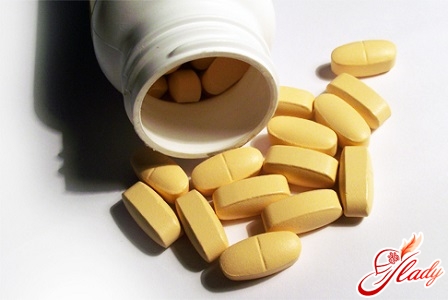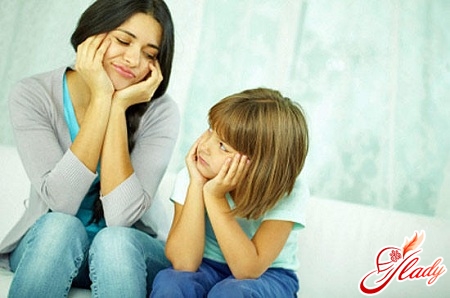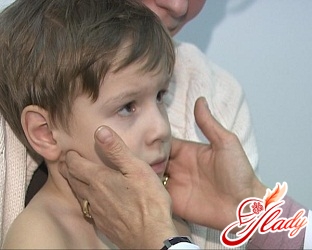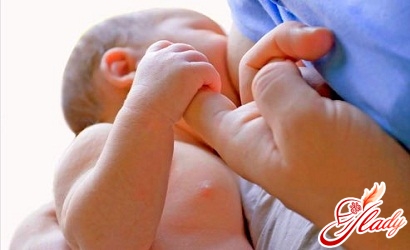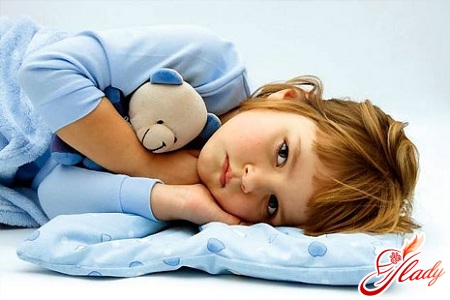 What kind of diseases don't lie in wait?fragile child's body! And one of such very unpleasant diseases is cystitis. Although, however, it is unlikely that any disease can be called pleasant... Acute cystitis in children is quite common. And it is almost impossible to predict its occurrence. Therefore, all parents without exception should be especially attentive and vigilant. And what is necessary for this? That's right, you need to have the most complete information. And this is exactly what we will talk about in our article. Knowing the main causes of cystitis and its main symptoms, parents can notice the emergence of a problem in a timely manner. And knowledge of the basic principles of treating a child will allow you to have a clear idea of what to expect from doctors and how the child will be treated. So, are you ready? Let's begin.
What kind of diseases don't lie in wait?fragile child's body! And one of such very unpleasant diseases is cystitis. Although, however, it is unlikely that any disease can be called pleasant... Acute cystitis in children is quite common. And it is almost impossible to predict its occurrence. Therefore, all parents without exception should be especially attentive and vigilant. And what is necessary for this? That's right, you need to have the most complete information. And this is exactly what we will talk about in our article. Knowing the main causes of cystitis and its main symptoms, parents can notice the emergence of a problem in a timely manner. And knowledge of the basic principles of treating a child will allow you to have a clear idea of what to expect from doctors and how the child will be treated. So, are you ready? Let's begin.
Cystitis and forms of the disease course
Let's first figure out what cystitis is.All organs of the genitourinary system are lined with a mucous membrane. If an inflammatory process of the mucous membrane of the urethra develops, doctors talk about urethritis. Well, cystitis is nothing more than an inflammatory process that affects the mucous membrane of the bladder. Doctors distinguish two forms of the disease - acute and chronic. But in children, the acute form of the disease is most often encountered. But the chronic form also sometimes takes place. The chronic form of cystitis develops if the acute stage of the disease was not diagnosed in a timely manner. This means that the necessary treatment was not started in time, which is why, in fact, the chronic form of cystitis develops. Most often, it occurs in the following cases:
- Small children
The greatest difficulty is diagnosisacute cystitis in newborns and infants. This is explained very simply - in small children, the clinical picture of the course of the disease is extremely blurred. And it is not so easy to understand the reason for the baby's anxiety - you never know why the baby might cry? And the frequency of urination is also healthy. This is how cystitis remains unnoticed. And this disease lasts for years, making itself known by incontinence at an older age. Until cystitis worsens again and the disease is not detected.
- Lack of timely and correct treatment
In case the parents didn't pay attentionacute cystitis and the child did not receive treatment, cystitis is highly likely to become chronic. And even if the parents preferred to do it themselves and tried to treat acute cystitis with improvised means, the same sad outcome is possible. The symptoms of the disease may disappear, but the disease itself is highly likely to become chronic. As a rule, cystitis is most often diagnosed in school-age children and adolescents. Moreover, girls are faced with cystitis much more often than their peers-boys. This phenomenon is explained very simply - by the anatomical features of the genitourinary system. In girls, the urethra is much shorter than in boys. And it is located almost next to the anus, so pathogenic microflora penetrates into the bladder very quickly and without much difficulty. Moreover, there is another radical difference between boys and girls: in girls, a combination of urethritis and cystitis is most often observed, but in boys, urethritis is very often separate from cystitis – an independent disease.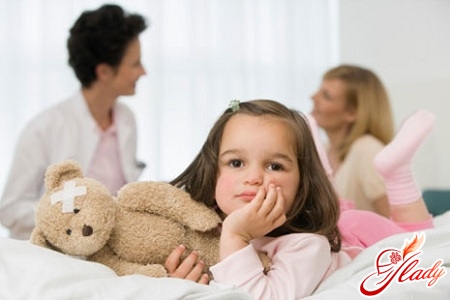
Causes of development of cystitis in children
In order for a child to develop sucha disease like cystitis requires the presence of serious provoking factors. Of course, each case has its own, but still, be sure to carefully read the most common ones - this can help to avoid the development of cystitis.
- Chronic kidney disease
If the child has a history ofany kidney disease, especially infectious, the probability of developing cystitis desperately tends to 100%. Moreover, it is in such a case, even if the treatment is started in a timely manner and competently, that a predisposition to chronic cystitis develops.
- Subcooling the body
The child's body is very fragile, and the immune systemthe system is still imperfect - the slightest negative impact can provoke the development of the disease. And one of such factors can be the most banal hypothermia, especially of the feet. The baby was happily splashing in puddles and got his feet wet? Cystitis will not keep you waiting! Although, of course, this cystitis does not develop in all cases of hypothermia, otherwise the clinics would be overcrowded with children suffering from cystitis. Cystitis after hypothermia develops only if there is already a focus of one or another chronic infection in the child's body. For example, descending cystitis - it develops if some chronic infectious process occurs in the child's kidneys.
- Violation of personal hygiene
This aspect is especially relevant for girls –For them, failure to observe personal hygiene rules is especially dangerous. You remember that their urethra is much shorter, which means that infection penetrates the bladder much faster. Therefore, it is very important to monitor the girl's intimate hygiene. Wash the baby correctly and teach her to do it herself in the future - from front to back, so that E. coli does not get on the genitals. And do not forget to change underwear - this should be done at least once a day.
- Thrush
You might be surprised, but even little onesgirls very often encounter such a problem as thrush. And thrush, in turn, very often becomes the cause of cystitis. Therefore, at the first symptoms of the disease, it is necessary to begin treatment for thrush as early as possible. Please note - most often thrush provokes the development of cystitis in teenage girls, and this happens several
- Violations of normal urination
There are a number of reasons that couldlead to disruption of the normal urination process - this is both holding back the urge to go to the toilet, and anatomical disruption of the structure of the urinary system, and a serious illness of the child. But the result is the same - a delay in normal outflow with a high degree of probability can cause the development of cystitis - both acute and chronic.
- Presence of parasites
In some cases, the development of cystitis can beprovoked by the presence of such parasites as pinworms and worms in the child's body. Therefore, a stool test is absolutely necessary. By the way, do not forget about the need for a preventive examination of the child - an analysis for worm eggs should be taken every six months. And the whole family, including pets. Most often, small children, especially girls, face such cystitis. Parasites penetrate the urethra, and sometimes the bladder, thereby provoking the development of a strong inflammatory process. In this case, both chronic and acute cystitis are possible. And it will take a very long time to treat it if the parasites are not identified and eliminated in a timely manner.
- Taking certain medications
Sometimes a child is forced to undergo a course of treatmentsuch drugs that can also provoke the development of acute cystitis. Such drugs include urotropin, sulfonamides, as well as drugs that are designed to suppress the activity of the immune system. Your doctor will probably warn you about this. But be careful yourself - take all the necessary preventive measures. Which ones exactly - we will tell you a little below.
- Surgical intervention
In the event that the child for any reasonhas undergone surgery on the bladder or genitals, the risk of developing acute cystitis increases several times. Doctors know about this feature of the child's body and prescribe preventive therapy.
- Presence of a source of chronic infection in the child's body
It's hard for parents to imagine, but oftenThe cause of acute cystitis is such diseases as tonsillitis, sore throat, adenoids and even caries. Especially if they are chronic. Incidentally, cystitis in this case will recur until the source of chronic infection is eliminated. And treating it is simply useless.
- Weakened immunity
In the event that the child is weakened, it is oftenis sick, he may develop cystitis much more often than all other children. Therefore, parents of a child with a weakened immune system should be especially attentive and remember about preventive measures.
Symptoms of cystitis in children
As mentioned above, cystitis is asymptomaticcan only occur in very young children who cannot complain about a deterioration in their health. And even then, attentive parents often notice certain signs: a change in the baby's health and behavior. And in older children, the symptoms of cystitis are quite typical:
- Painful sensations
In most cases, children complain of severepain in the lower abdomen, and sometimes in the lumbar region. In addition to pain, a feeling of heaviness may appear. But remember - similar symptoms can be observed in a number of other cases.
- Problems with urination
First of all, cystitis has a negative impact on the body itself.the process of urination - it becomes much more frequent, false urges to urinate also appear. And every trip to the toilet becomes a real test for the baby - after all, the process of urination is accompanied by pain and severe burning. These symptoms appear, as a rule, before all the others.
- Change in urine
The child's urine changes color - as a rule,it becomes very dark, almost brown, despite frequent urination. In addition, the urine acquires a very sharp and very unpleasant smell. Sediment appears, and in particularly severe cases, an admixture of pus and even blood may appear in the urine - very serious symptoms indicating a threat.
- Increased body temperature
In almost all cases of acute cystitis,and during an exacerbation of chronic, the body temperature rises quite significantly - up to 39 - 40 degrees. And bringing it down is a real problem, the usual antipyretic substances are practically powerless. And in the case of chronic cystitis, it will not be possible to avoid an increase in temperature. True, in this case it does not rise above 37.5 degrees. And all the other symptoms are expressed less clearly.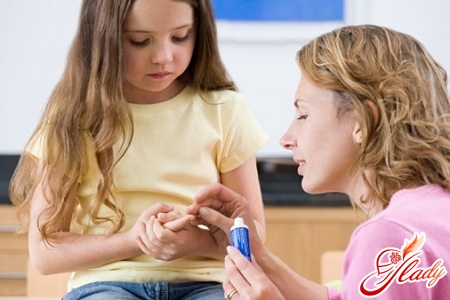
Diagnosis of cystitis in children
In order to start treatment, you need todiagnose the disease faster and identify the cause of cystitis. To do this, the doctor will prescribe a number of studies and tests for the child. And only on the basis of this data will the doctor be able to form an overall picture, understand what caused the development of cystitis. And therefore, choose the optimal treatment regimen.
- Urinalysis
First of all, you need to take a urine test -both general and for bacteriological examination. Bacteriological examination is necessary to determine which pathogen provoked the development of cystitis. Of course, in the case when cystitis has a bacterial origin. For this, a small portion of urine is placed in a special nutrient medium and observed for several days. If the disease is caused by pathogenic microflora, it will begin to grow rapidly. In addition, such an analysis allows you to determine the sensitivity of bacteria to a particular antibiotic, which will allow you to accurately select drugs for the treatment of cystitis. As a rule, in acute cystitis, a general urine test shows an increased content of epithelial cells. Leukocytes are also present - they indicate a strong inflammatory process. But protein and changes in urine density are not observed. By the way, there are no changes in the blood. And the general somatic condition of the child does not change much. Except for those changes that are a consequence of an increase in body temperature.
- Ultrasound examination of the urinary system
In order to get a complete picture ofcondition of the child, it is unlikely that you will be able to do without an ultrasound examination of the child's entire genitourinary system. The doctor will assess the structure and condition of the kidneys, ureters and the bladder itself. Ultrasound will also reveal the presence of sand and stones. Do not be surprised - recently, stones are increasingly being found in the kidneys and bladder of even the smallest children.
Treatment of cystitis in a child
Treatment of cystitis in children is a difficult task andсправиться с ней под силу только врачам. Ни в коем случае не занимайтесь самолечением даже в том случае, если все симптомы указывают именно на острый цистит. Выше уже неоднократно говорилось о том, что для того, чтобы вылечить заболевание, необходимо точно знать причину, спровоцировавшую развитие цистита. Например, в том случае, если цистит был вызван бактериями, противогрибковое лечение не окажет абсолютно никакого лечения. Ну а в том случае, если цистит спровоцирован молочницей, антибактериальной терапией болезнь не вылечить – она только в разы ухудшит состояние ребенка, так как цистит примет более тяжелую форму течения. Да и осложнения неправильно леченного цистита могут быть самыми серьезными. Вы же не хотите, чтобы ваш ребенок столкнулся с такими заболеваниями, как гломерунефрит или пиелонефрит? А в случае самолечения такой исход очень даже возможен. Поэтому все же не занимайтесь самодеятельностью и как можно быстрее покажите ребенка врачу. Однако и от родителей правильное лечение цистита у детей зависит во многом. Во-первых, обеспечение правильного режима дня на период лечения. Как правило, в стационаре лечат только самых маленьких деток или самые тяжелые формы цистита. Во всех остальных случаях лечение проводится в домашних условиях. И родители должны строго следить за соблюдением всех рекомендаций и назначений лечащего врача. Ребенок в период болезни должен соблюдать строгий постельный режим. Хотя, справедливости ради, следует отметить, что больной ребенок и сам не стремится к активным играм, так как его самочувствие оставляет желать лучшего. Не менее важно и соблюдение личной гигиены – купать ребенка необходимо как минимум раз в сутки, а нательное белье нужно менять после каждого посещения туалета. Во-вторых, очень важно обеспечить ребенку на время лечения правильный рацион питания. Существует целый ряд строго запрещенных продуктов – все жирные, острые, копченые и тем более соленые блюда. Никаких искусственных консервантов и красителей – только натуральные продукты. Никаких газированных напитков и свежих соков – они оказывают на мочевой пузырь очень сильное раздражающее воздействие. Что же кушать больному малышу? Всевозможные молочные каши, нежирные сорта рыбы, птицы и мяса, термически обработанные овощи и некислые фрукты. В-третьих, очень важно соблюдать правильный питьевой режим. Во время заболевания ребенок должен пить как можно больше жидкости – не меньше 1.5-2 литров в сутки. Лучше всего для этих целей подходит чистая питьевая вода. Однако не каждого ребенка заставишь пить такое количество воды – поэтому родителям приходится идти на определенные хитрости. В частности, предложить ребенку вкусное питье. Например, можно приготовить малышу клюквенный или брусничный отвар. Готовится он достаточно просто – как обычный компот. Причем можно использовать как свежие ягоды, так и замороженные, ели дело происходит в зимнее время. Благо, в наше время можно приобрести эти ягоды в любом супермаркете. Возьмите 200 грамм ягод, промойте и поместите их в эмалированную кастрюлю. Залейте ягоды двумя литрами воды, доведите до кипения. Добавьте половину стакана сахарного песка, уменьшите огонь и варите на протяжении 30 минут. После этого остудите отвар, процедите его при помощи марлевой ткани – как правило, дети не очень любят вареные ягоды. Отвар готов – можно предложить его ребенку. В том случае, если ребенок по каким-либо причинам отвар пить отказывается, попробуйте предложить ему чай с молоком. Лучше всего заваривать зеленый чай – он оказывает меньшую нагрузку на почки и мочевой пузырь. Разбавьте чай молоком в пропорции 1 к 1. Не забудьте положить сахар – иначе ребенку чай вряд ли понравится. Но не переусердствуйте – избыток сахара при цистите крайне нежелателен. Старайтесь давать ребенку пить понемногу, но часто. Так и ребенок будет пить охотнее, да и пользы для организма будет больше. Ведь что, по сути, происходит при обильном питье? Правильно, обильное мочеиспускание. Таким образом происходит вымывание инфекции из организма. Однако не переусердствуйте – излишняя нагрузка на почки также совершенно ни к чему. Разумнее всего посоветоваться с лечащим врачом ребенка – он подскажет оптимальное количество выпиваемой жидкости. 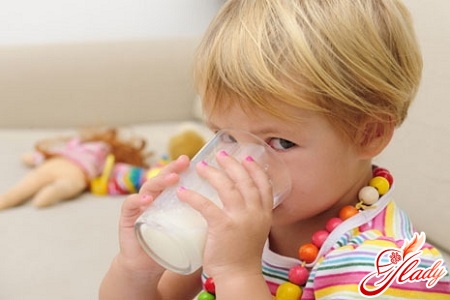
Prevention of the development of cystitis in children
Of course, modern medicine has successfullycopes with the treatment of cystitis. But it is much wiser to prevent childhood cystitis in a timely manner. Of course, it is impossible to completely insure against cystitis, but it is still possible to reduce the probability several times. To do this, you need to follow several simple but very effective rules:
- Hygiene rules
Make sure your child takes a showerevery day. Never use various detergents - only ordinary baby soap. All other cosmetics are intended for adults. And they can provoke a violation of the microflora in a child, especially in a girl. And therefore, provoke the development of the same cystitis. Teach girls to wash themselves correctly, and preferably after each visit to the toilet. Do not forget about the age-old rule - wash your hands not only after using the toilet, but also before visiting it. Keep your child's underwear clean.
- Avoid child hypothermia
Of course, no one is calling you to keepa child in hothouse conditions. However, severe hypothermia should still be avoided. But if the child is still cold, prepare a foot bath with warm water. After that, rub the feet thoroughly and put warm socks on the child.
- Prevention of parasites
Be sure to regularly examine your child for parasites. If necessary, give your child antiparasitic drugs in a timely manner. Your pediatrician will tell you which ones.
- General health of the child
Pay attention to the general condition of the bodychild. Undergo medical preventive examinations, follow all the doctor's recommendations. Monitor your child's lifestyle - he should exercise enough, be outdoors, sleep. All these measures will strengthen the child's immunity. This means that the likelihood of developing cystitis will decrease significantly. As you can see, preventive measures are extremely simple. But this does not prevent them from working perfectly and protecting the child from such a misfortune as cystitis. Let your child grow up healthy and happy! We recommend reading:




